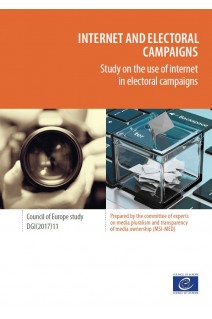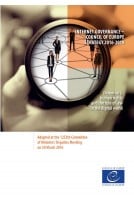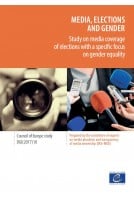



This study examines the implications of the shift of electoral advertising to the internet, in particularly as regards electoral spending and questionable advertising techniques based on micro-targeting of voters with personalised messages.
The study identifies a number of concerns for the fairness and legitimacy of electoral processes, such as the lack of transparency of campaigning, spending, messages and algorithms used in digital advertising, large-scale invasions of privacy, lack of journalism filter to fact-check political messages, the increased amount of disinformation, and lacunas in electoral campaigning regulation (e.g. impossibility to enforce silence periods).
It concludes that the current regulatory framework no longer suffices for maintaining a level playing field for political contest and for limiting the role of money in elections. The study identifies a number of areas where electoral and media legislation should be revisited and reinforced in the future.
INTRODUCTION
1. WHAT COULD POSSIBLY GO WRONG? SOCIAL MEDIA, ELECTIONS AND DEMOCRATIC LEGITIMACY
2. BACKGROUND: REGULATION OF ELECTORAL CAMPAIGNS: FAIR, CLEAN AND CLEAR
(a) Objectives
(b) International standards and principles
3. THE CHANGING REALITY OF POLITICAL CAMPAIGNING
(a) Spending
(b) New Digital Marketing Techniques and their application in politics
4. POTENTIAL PROBLEMS ASSOCIATED WITH NEW DIGITAL TECHNIQUES
(a) Regulation of electoral campaigning
(b) Transparency
(c) Campaigning on Wedge Issues
(d) Political Redlining
(e) Intermediaries
(f ) Ethics and journalism self-regulation
(g) Privacy
(h) Tracking the sources of campaign financing
(i) Overview: the objectives revisited – the new threats to fair, clean and clear election campaigning.
5. CONCLUSIONS
REFERENCES



This study examines the implications of the shift of electoral advertising to the internet, in particularly as regards electoral spending and questionable advertising techniques based on micro-targeting of voters with personalised messages.
The study identifies a number of concerns for the fairness and legitimacy of electoral processes, such as the lack of transparency of campaigning, spending, messages and algorithms used in digital advertising, large-scale invasions of privacy, lack of journalism filter to fact-check political messages, the increased amount of disinformation, and lacunas in electoral campaigning regulation (e.g. impossibility to enforce silence periods).
It concludes that the current regulatory framework no longer suffices for maintaining a level playing field for political contest and for limiting the role of money in elections. The study identifies a number of areas where electoral and media legislation should be revisited and reinforced in the future.
